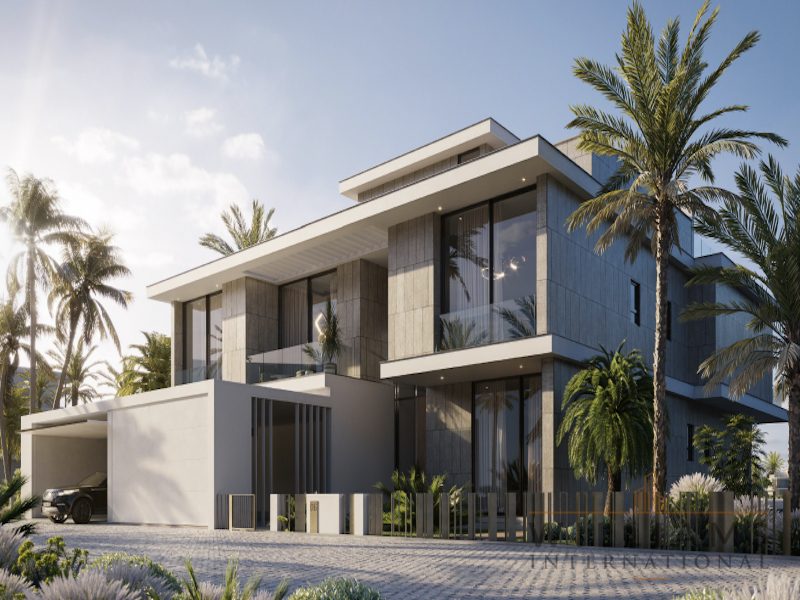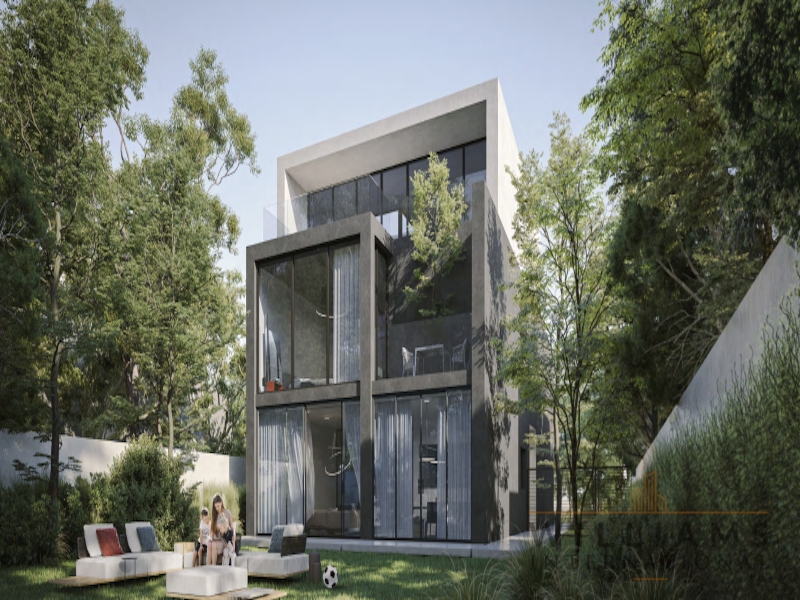Ever thought about diving into the shimmering pool of Dubai’s real estate market? The idea can be as exhilarating as it is intimidating, right? You’re probably asking yourself: Can foreigners own property in Dubai? How does the buying process work for non-locals? What financing options exist out there?
We promise you’ll get insights on these crucial topics and more by sticking around. Together we’ll decipher freehold versus leasehold ownership models, discuss rental laws from an outsider’s perspective and even peek into the future of real estate laws in Dubai.
Table Of Contents:
- Understanding the Basics of Dubai’s Real Estate Laws
- The Impact of Freehold Property Law on Foreign Ownership
- Leasehold vs. Freehold Ownership in Dubai
- The Process of Buying Real Estate in Dubai as a Foreigner
- Financing Your Real Estate Investment in Dubai
- Understanding Taxes and Fees Associated with Property Ownership in Dubai
- Navigating Rental Laws as a Foreign Property Owner in Dubai
- The Future of Real Estate Laws in Dubai
- FAQs in Relation to Real Estate Laws in Dubai
- Conclusion
Understanding the Basics of Dubai’s Real Estate Laws
Dubai’s real estate market is unique, shaped by a mix of innovative regulations and strategic initiatives. It all starts with understanding the core principles governing property ownership.
The Dubai Land Department (DLD), the city’s official land registry authority, enforces these laws to maintain transparency and protect investor interests.
Key Principle: Freehold Ownership for Foreigners
In 2006, Dubai made history when it opened its doors to foreign property owners through Law No.7 or commonly known as ‘Freehold Property Law’. This law lets foreigners buy properties outright in designated freehold areas across the city – a game-changer that boosted Dubai’s global appeal as an investment hotspot.
The Concept of Usufruct Rights
Beyond freeholds, another key aspect of Dubai’s real estate legal framework involves usufruct rights – a type of long-term lease spanning up to 99 years. Under this arrangement, you don’t own the land but have extensive usage rights over it – from building structures to sub-leasing them out.
Strata Title Law: Shared Ownership Rules
If you’re eyeing an apartment or office space within multi-storey buildings then you should get familiar with the Strata Title Law issued in 2010. This legislation gives clear rules on shared ownership and management duties in strata-titled properties like condos or townhouses – essential knowledge if high-rise living is your cup of tea.
Mortgage Regulations
Last but not least are mortgage laws which lay down loan-to-value ratios and borrowing limits. For example, the DLD caps mortgage loans for foreigners at 75% of a property’s value if it costs less than AED 5 million.
But remember – this is just the tip of the iceberg when it comes to understanding Dubai’s real estate laws. So always do your homework or seek expert advice from our Dubai real estate team before diving into an investment.
The Impact of Freehold Property Law on Foreign Ownership
Dubai’s Freehold Property Law has been a game-changer for foreign investors. Think of it as opening the doors to an exclusive club – suddenly, you’re not just renting space, but buying into a lifestyle.
Before 2006, foreigners could only lease or rent properties in Dubai. But with the introduction of Freehold Property Law, they got the right to buy land and property outright in designated areas.
This new law gave foreigners the freedom to own a piece of Dubai, as well as the opportunity to benefit from its booming real estate market. Owning property lets you have your own piece of one of the world’s fastest-growing cities while potentially benefiting from its thriving real estate market.
Freehold Areas – The Global Investor’s Playground
A key feature is that these freeholds are predominantly located in new developments geared towards luxury living like Palm Jumeirah or Downtown Dubai.
Advantages Of Freeholding
- You don’t need any local sponsorship to purchase property – so no more jumping through hoops.
- You can sell or pass on your property without restriction – imagine giving away keys to a shiny new apartment instead of another tie this Christmas.
- Your investment isn’t limited by time constraints as with leases – because who wants their dreams tied down by deadlines?
The Catch? Certain rules do apply to foreign ownership, like needing a residence visa if you want to live in your property. But it’s not really a catch – more of an administrative hurdle.
Also, freehold rights aren’t universally applicable across Dubai. Only specific areas are designated as ‘freehold zones’. So while you may be eyeing that beachfront villa, make sure it falls within the right area.
Making The Most Of Freeholding
When you have pros like our team at Williams International on your side, getting a piece of Dubai’s real estate market is a breeze. Our years of experience and deep understanding of the laws and rules for foreigners buying properties in this area make it simple.
Leasehold vs. Freehold Ownership in Dubai
Dubai’s real estate market is unique, with two distinct forms of property ownership available to foreign investors: leasehold and freehold. Both forms of ownership come with distinct legal obligations and rights.
The Concept of Leasehold Ownership
In a leasehold agreement, you essentially rent the property for a long-term period—typically 99 years. You have full rights to live in or let out the property during this time. But remember, you don’t own the land on which it stands—a key point that differentiates it from freehold ownership.
Nuances of Freehold Ownership
Freeholding lets you fully own both the structure and the land underneath—an attractive proposition for many foreign investors. In certain areas designated by the Dubai government, foreigners can buy properties outright without any time limitations associated with leaseholds.
Weighing Up Pros And Cons
Both models have their advantages. Leaseholds tend to be more affordable up front because they’re technically rental agreements rather than purchases. However, once your term ends (even if it’s decades away), so do your rights over that property unless renewed. On the contrary, freeholds give perpetual ownership, making them potentially more lucrative as investments.
Legalities and Changes
The legal landscape around leasehold vs. freehold ownership is always changing in Dubai, as the government seeks to attract more foreign investment. A recent law now allows expats to own freehold properties in designated areas—previously they could only get leaseholds.
In essence, both forms of property ownership offer unique opportunities for foreigners looking to invest in Dubai’s real estate market. The selection of either freehold or leasehold ownership should be determined according to one’s objectives and level of risk-taking.
The Process of Buying Real Estate in Dubai as a Foreigner
Buying property in Dubai isn’t as daunting as it may seem. The city has an open and efficient property market that welcomes foreign investors.
Step 1: Choosing the Right Property
Dubai offers a broad selection of choices, ranging from villas to apartments and even office spaces, to meet your specific requirements.
Step 2: Finding a Reliable Real Estate Agent
A trustworthy real estate agent can make all the difference when buying property abroad. At Williams International, we use our deep knowledge of the local market to help foreigners find their ideal properties.
Step 3: Securing Financing
If you need financing for your purchase, there are many banks in Dubai that offer mortgages to foreigners. It’s essential though, that you understand Dubai’s mortgage laws and regulations. Our team can help guide you through this process.
Step 4: Finalizing the Purchase Agreement
You’ll then sign a Memorandum of Understanding (MoU) with the seller which outlines terms like price and transfer date. After signing this agreement, you’ll pay a deposit, typically around 10%.
Step 5: Registering Your Property
The final step is registering your new home with Dubai Land Department. They will issue a title deed confirming you as the official owner.
This process may seem complicated, but it’s really quite straightforward when you have experienced professionals guiding you. At Williams International, we’ve helped many foreigners navigate this journey with ease and confidence.
Financing Your Real Estate Investment in Dubai
Making an investment in Dubai’s real estate can be a fruitful venture. But before you get started, understanding your financing options is crucial. Here at Williams International, we’ve got the insights to help.
Foreign Investors and Mortgages: The Basics
Contrary to popular belief, foreigners can secure mortgages in Dubai. This option opens doors for many who are considering investing but might not have all cash upfront.
Lenders generally ask foreign investors for a down payment of 25% of the property value for properties under AED 5 million, and 35% above that price bracket .
Dubai’s Mortgage Cap Law: Know What You’re Getting Into
Instituted by the UAE Central Bank, mortgage cap law limits how much banks can lend based on borrower income levels and property values. It’s critical to understand this law as it directly impacts your borrowing capacity.
Get Professional Help
As Dubai’s real estate laws are complex and continually evolving, seeking professional help is advisable. Expert guidance can navigate you through financing options best suited for your needs and risk profile.
Remember that this information provides a general overview of financing property investments in Dubai. For personalized advice tailored to your circumstances, consider reaching out to us at Williams International.
Understanding Taxes and Fees Associated with Property Ownership in Dubai
When acquiring real estate in Dubai, there is more than just the purchase cost to take into account; taxes and fees can have a substantial effect on your total investment. A variety of taxes and fees can significantly impact your overall investment.
The Absence of Property Tax
Dubai stands out among global cities for its absence of a traditional property tax. Unlike many countries where homeowners are taxed annually based on their property’s value, this isn’t the case here. This is a huge perk for foreign investors looking into buying properties in Dubai.
Title Deed Registration Fee
A key fee associated with owning real estate in Dubai is the Title Deed Registration fee, which amounts to 4% of your property’s value. It gets split equally between buyer and seller (each paying 2%). So if you’re planning to buy an apartment worth $1 million, prepare yourself for a $20K hit.
VAT on Real Estate Services
Remember that services related to real estate transactions also attract Value Added Tax (VAT) at 5%. From brokerage services or home inspection charges – these all come under VAT’s umbrella.
Maintenance Charges: An Unavoidable Reality
All those glitzy skyscrapers need maintenance. As an owner, expect service charges as part of life here. These vary depending on building type but be prepared; they can add up quickly.
Ejari Contract Registration Fee
If you plan on renting out your new shiny asset then don’t forget about Ejari registration costs. The Dubai government mandates a fee for registering rental contracts in the Ejari system.
Property ownership in Dubai might seem complex with all these fees and charges, but it’s worth noting that compared to many global cities, overall costs are competitive. Plus, you’re investing in one of the most dynamic real estate markets on Earth.
Navigating Rental Laws as a Foreign Property Owner in Dubai
As an international property owner in Dubai, it’s vital to understand the city’s rental laws. Renting regulations are intricate but created to safeguard both property owners and occupants.
Dubai’s Real Estate Regulatory Agency (RERA) is responsible for overseeing these rules. They have developed comprehensive guidelines on how leases should be managed and disputes resolved.
Rental Cap Regulations
A key aspect of renting out your property in Dubai is adhering to RERA’s rental cap regulation. This rule ensures that rent increases stay within reasonable limits each year, helping maintain market stability.
The increase depends on the difference between your current rent and the average rate for similar properties listed in RERA’s Rental Index. Knowing this will help you set fair rents while optimizing returns from your investment.
Tenant Eviction Rules
Ejecting a tenant isn’t straightforward either; there are specific conditions under which eviction can occur. For instance, if you want to sell or move into the property yourself, you need to give 12 months’ notice via notary public or registered mail before terminating the lease contract.
Renting Dispute Settlements
If disagreements arise with tenants, they’re usually settled by RERA’s Rent Disputes Settlement Centre (RDSC). Having experienced legal counsel familiar with RDSC proceedings could prove beneficial during such instances.
So, while Dubai’s rental laws might seem complex initially, understanding them is vital to successfully leasing your property. These rules provide a structured approach that balances the needs of landlords and tenants alike.
The Future of Real Estate Laws in Dubai
Guessing what lies ahead for real estate laws in Dubai is a dangerous endeavor, yet based on existing trends and forecasts from professionals, we can make educated assumptions. With an eye towards progress, the city has been continuously amending its regulations to create a more attractive environment for foreign investors.
Predicted Changes In Freehold Property Law
Firstly, let’s talk about freehold property law. Since foreigners were first allowed to own property outright in designated areas under this law back in 2002, there have been calls for expansion. The push is not just from potential buyers but also from developers who see increased sales opportunities with more relaxed rules.
In fact, whispers within industry circles suggest that changes could come sooner rather than later. While nothing is official yet, these developments would potentially give foreigners even more freedom when investing in Dubai’s real estate market.
Forthcoming Adjustments To Mortgage Regulations
Mortgage laws are another area where we might see some evolution. As it stands now, they tend to favor banks over borrowers which can deter foreign investment. Potential revisions may include lower down payments and longer loan terms, making financing more accessible for overseas buyers.
This speculation isn’t without basis either – government bodies like the UAE Government of Future consistently strive towards bettering the investment climate, and revising mortgage laws aligns with this goal.
Emerging Rental Law Developments
The rental market isn’t immune to changes either. As more foreigners buy properties in Dubai, there’s a growing need for clearer regulations around landlord and tenant rights. Future laws may aim to strike a balance that protects both parties’ interests without hindering investment prospects.
All these potential developments paint an optimistic picture of Dubai’s real estate future – one where the city becomes even more appealing for foreign investors seeking lucrative opportunities abroad.
FAQs in Relation to Real Estate Laws in Dubai
What are the rules to buy property in Dubai?
To buy property in Dubai, you need to follow specific guidelines. You must be at least 21 years old and have a valid passport for identification.
Can you actually own property in Dubai?
Yes, foreigners can own freehold properties outright within designated areas of Dubai known as ‘freehold zones’.
What are the real estate laws in Dubai 2023?
Dubai’s real estate laws may change over time based on market trends. For accurate information regarding 2023, it’s best to consult a local legal expert or speak to a member of our team who can advise you better.
Conclusion
Today, we’ve peeled back layers of complexity around Dubai’s property laws.
Freehold Property Law lets foreigners own properties outright in designated areas – a game-changer for global investors!
Remember how leasehold differs from freehold ownership? The details are crucial when planning your investment strategy.
The process to buy property as a foreigner is straightforward once you have clarity and there are various financing options at your disposal too.
Avoid getting blindsided by taxes and fees tied to owning property in Dubai; knowing these costs upfront will keep surprises at bay.
Rental laws protect both landlords and tenants; make sure you know your rights before leasing out any properties.



